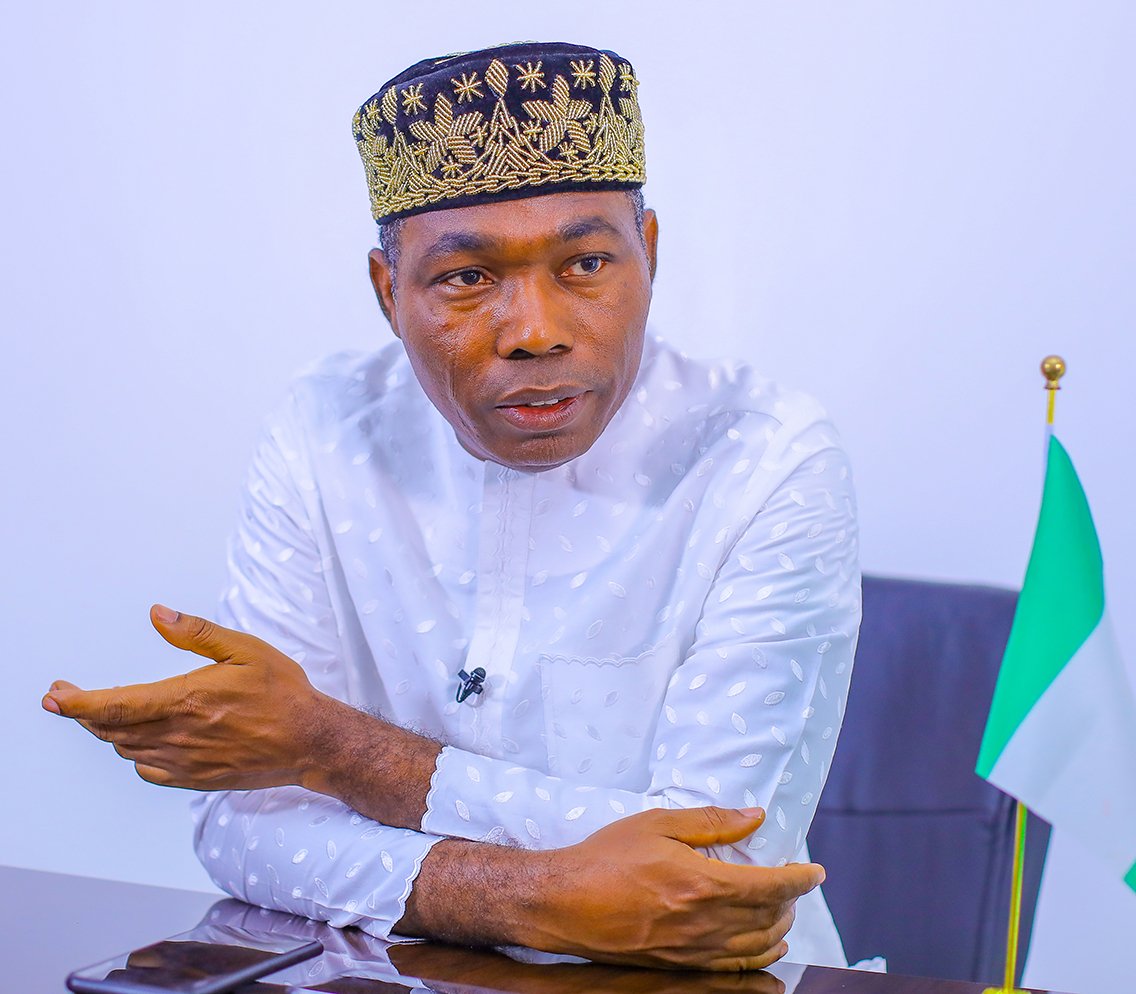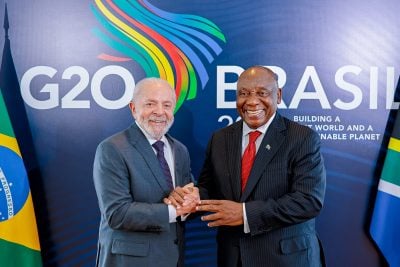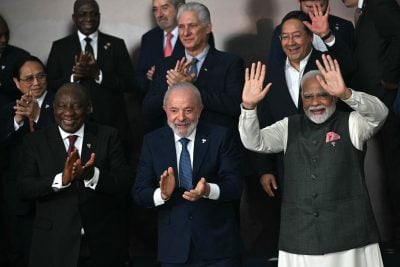This article was produced with the support of Kaftan
As a member of the Social Democratic Party (SDP) since 1991, Prince Adebayo is gearing up to contest the presidency in the 2027 elections. He is a man deeply rooted in Nigeria’s royal heritage, with a fervent commitment to eradicating poverty through strategic leadership. With a focus on youth empowerment, improving core public services including education, eliminating corruption and economic revitalisation, he aspires to position Nigeria not as a land of challenges but as a prime destination for global investors.
Prince Adewole Adebayo’s journey is one of perseverance and purpose. Born into the Yoruba ethnic group in the western part of Nigeria, he hails from the Ondo Kingdom, where his royal family has held authority for over 500 years. Tracing its lineage back to around 1510 AD, the family branched from the ancient Oyo monarchy, instilling in him a sense of historical responsibility and leadership. This background, however, did not shield him from Nigeria’s broader societal issues; instead, it fuelled his empathy for the underprivileged.
Professionally, Prince Adebayo is a seasoned lawyer with more than 25 years of experience. He is licensed to practice not only in Nigeria but also in several US states including New York and California, and is also a fellow of the Chartered Institute of Arbitrators in the UK and Singapore. His expertise lies in international investment law, where he has handled high-profile cases across Australia, England, Nigeria, the US and Europe.
Beyond law, Prince Adebayo is a multifaceted entrepreneur and philanthropist. He has invested in the media sector, establishing TV stations to amplify voices and foster information access. In agriculture, he champions sustainable practices, while his environmental passion is evident in his personal hobby: tree planting. This hands-on approach reflects his strong belief in personal agency to combat environmental degradation.
His educational foundation in history, pursued in preparation for law school, shaped his worldview. Growing up during Nigeria’s turbulent years, he witnessed poverty and underdevelopment first-hand. Yet he rejected narratives of inevitable African stagnation, viewing history not as a chronicle of grievances but as a call to action. This perspective propelled him into politics at just 19 years old, joining the SDP after comparing its manifesto, which emphasised social investment in education, healthcare, housing and infrastructure – with the more market-driven National Republican Convention (NRC). He saw the SDP’s left-leaning ideology as essential for first building Nigeria’s human capital, which would then provide the foundation for unlocking free-market efficiencies.
Prince Adebayo’s political foray stems from profound dissatisfaction with Nigeria’s leadership deficits. He argues that Africa’s environment – rich in resources and human potential – renders poverty illogical, akin to starving at a buffet. “The environment makes you a liar when you say you are poor,” he quips, attributing widespread deprivation to poor leadership rather than scarcity. Genetically predisposed to happiness and health, Nigerians, he believes, are thwarted by systemic failures that could be rectified in one generation through skill acquisition, education and agricultural extension.
“People are growing tired of hearing about Nigeria’s vast economic potential. We have clear systemic issues which few in positions of authority are willing to fix. Nigerians deserve an alternative, effective solution,” he explains.
Investing to create a humane society
His vision for Nigeria is rooted in social democracy: a government actively investing in its people to create a humane society. He envisages a nation where democratisation extends beyond politics to economics, fostering an independent judiciary, rules-based markets and infrastructure development. Critiquing past regimes for jobless growth and rent-seeking, he advocates for meritocratic leadership that prioritises international best practices over patronage.
Prince Adebayo is unequivocally standing for president in the 2027 elections on the SDP platform, with primaries opening in the first quarter of 2026 and the general election following a year later. His announcement builds on a 2023 bid where, at 50, he was dubbed a “young man” by the media – a label reflecting Nigeria’s cultural deference to elders. Now he aims to lead a generational shift, drawing from his private-sector experience to instil clean governance and economic dynamism.
His ambitions centre on reversing Nigeria’s fortunes by addressing core maladies: poverty, insecurity, unemployment and infrastructural deficits. He plans to achieve this through a multi-pronged strategy.
First, enforce Chapter 2 of Nigeria’s constitution, which mandates social investments in security, education, healthcare and housing. By prioritising these over extravagances like presidential jets, he aims to eliminate poverty.
Second, foster full employment, rejecting any economic model that doesn’t engage the populace. His priority is single-digit unemployment via targeted programmes, emphasising that “once you have full employment, the rest of your problems can be dealt with.”
Key to his turnaround is building a “medium-sized economy” blending China’s industrialisation, India’s urban vibrancy and the US’s market sophistication.
“Nigeria would export contributions, not problems – talent, goods and capital – while embracing global integration,” Adebayo explains.
He rejects isolationism or protectionism, advocating for competitive rules where intellectual property is purchased, not stolen and foreign labour flows freely.
To implement this, Prince Adebayo outlines five pillars: (1) Establish a clean, accountable government by appointing ethical ministers and advisors; (2) Boost productivity to eradicate poverty; (3) Institute transparent market rules to attract investors; (4) Ensure an independent judiciary for social, economic and legal justice; and (5) Achieve full employment as a non-negotiable goal. Mid-term success in his first term, he asserts, would signal a prosperous presidency.
Crucially, Prince Adebayo pitches Nigeria as an indispensable investment hub. “Africa is the place to go. It’s not if, but when,” he asserts, urging investors to look to the continent for opportunity. As Nigeria progresses toward rule of law, economic spaces open, with separated powers ensuring enforceable business rules and less politicised justice.
Bridge an infrastructure gap
An estimated one trillion dollars is required to bridge an infrastructure gap, which should be viewed as an opportunity, rather than a deterrent. Foreign investors, particularly from China, have capitalised on this by building roads and improving electricity access, which have in turn reduced business costs and facilitated trade. Digital infrastructure, including broadband and satellite tech, expands this definition in the era of the digital economy.
He insists on best practices, rejecting contact-based entry for rule-based markets. Nigeria’s youthful manpower, new markets and industrial inputs make it the “new frontier”. Ethical investments from OECD nations, akin to Nixon’s China pivot or India’s ICT boom, could boost global productivity, lower prices and integrate Africa beyond aid and charity.
In partnership, investors gain predictability, security and repatriation ease, while contributing taxes and jobs, he says. Prince Adebayo envisages mutual flows: Nigerian capital outbound, foreign expertise inbound, creating an integrated economy where Nigeria leads Africa in embracing global rules without historical grievances.
Central to Prince Adebayo’s agenda is youth empowerment and education. He recognises Nigeria’s youth bulge as both a challenge and an asset, lamenting the disenfranchisement of young Nigerians. He attributes this mostly to cultural norms where even 40-year-olds are seen as “kids”, as well as a lingering influence of military rule and delays in democratic development. Youths, he says, must “own the country” rather than export skills or complain.
His youth empowerment plan covers multiple sectors. In education, he aims to enrol 20m out-of-school children through family support, foster care, dormitories, nutrition, and sports programs.
On jobs, he proposes monitoring employment closely to prevent jobless growth and has a proven plan to create 30m jobs across a variety of sectors from agriculture to digital innovation and local manufacturing.
In agriculture, Adebayo seeks to modernise the sector with value-added processing, such as ginger oil, to generate employment.
Through sports, he intends to engage young people at the community level. In green technology, he plans to train 5m youths in horticulture, reforestation, and environmental stewardship.
In the creative industries and STEM fields, he will identify top talent and channel them into long-term careers in the military, civil service, and academia.
Finally, in enterprise, he will establish incubation centres, nurture entrepreneurs, and create the next generation of Nigerian billionaires.
Education underpins Nigeria’s potential for success, starting from prenatal care, vaccinations, nutrition and elementary schooling to build key skills and intellect. Adebayo criticises delayed opportunities, noting that investing in basics yields better results than elite universities without foundational human capital. Drawing from his own publicly funded education – from elementary to postgraduate – he vows to replicate this for millions, fostering loyalty where youths feel “the country has made me.” A safe society free from trauma will unleash youthful creativity, making Nigeria “a danger to the world” in innovation.
Women, (roughly half the population), are integral, with Prince Adebayo leading a programme to create one million women entrepreneurs across Africa.
From his royal-lawyer roots to his 2027 presidential run, he embodies the change he seeks: meritocratic, visionary leadership to harness Nigeria’s riches for its people. By prioritising youth empowerment through education, skills and opportunities and turning challenges into investment magnets, he aims to forge a prosperous, globally competitive nation.
As elections approach, his message resonates: Nigeria’s fortunes can turn in one generation, inviting investors to join the transformation. With such clarity and conviction, Prince Adebayo could indeed be the catalyst Nigeria needs.
 Sign in with Google
Sign in with Google 



